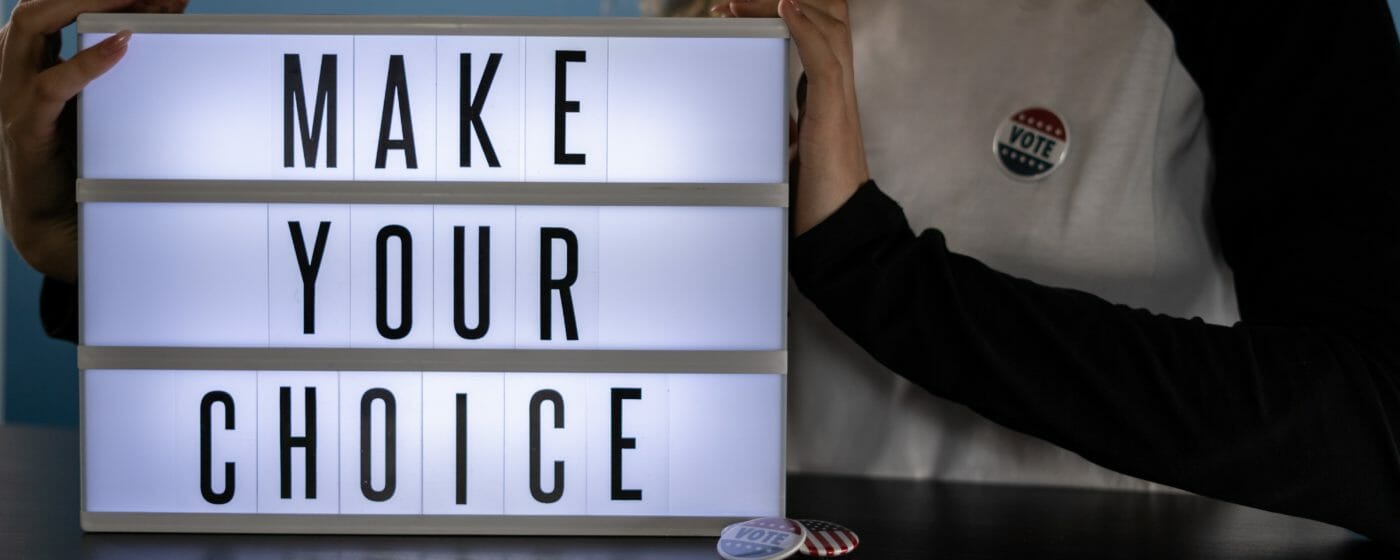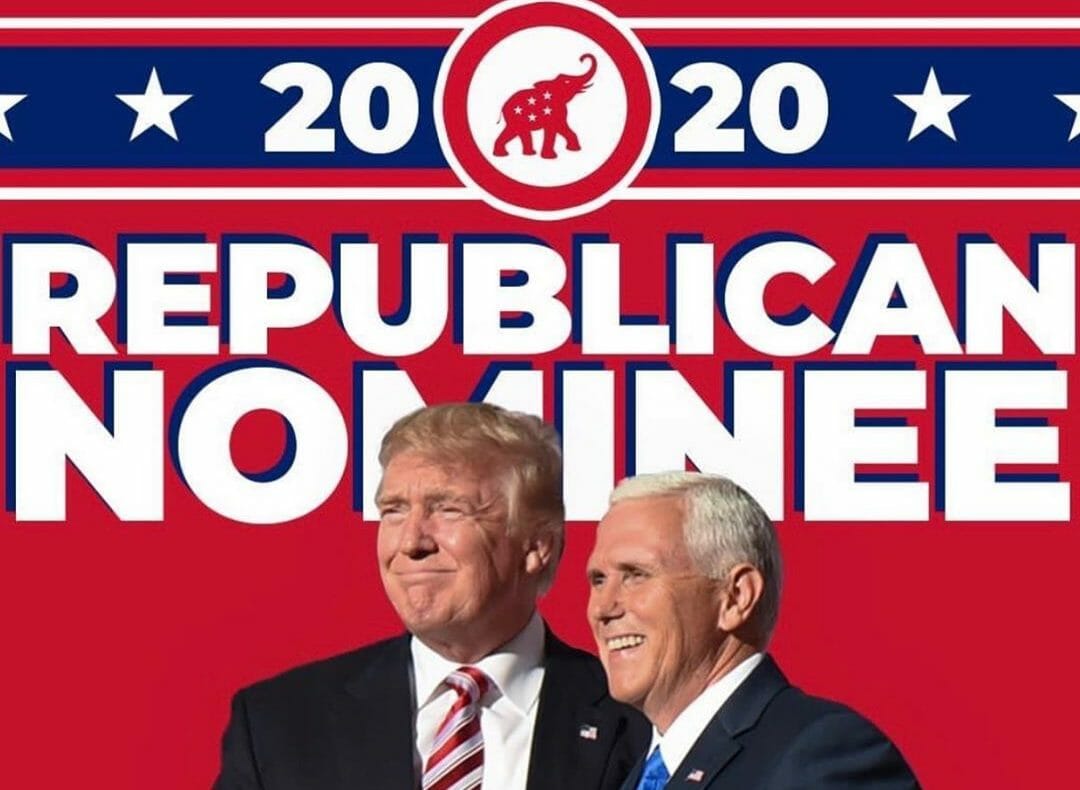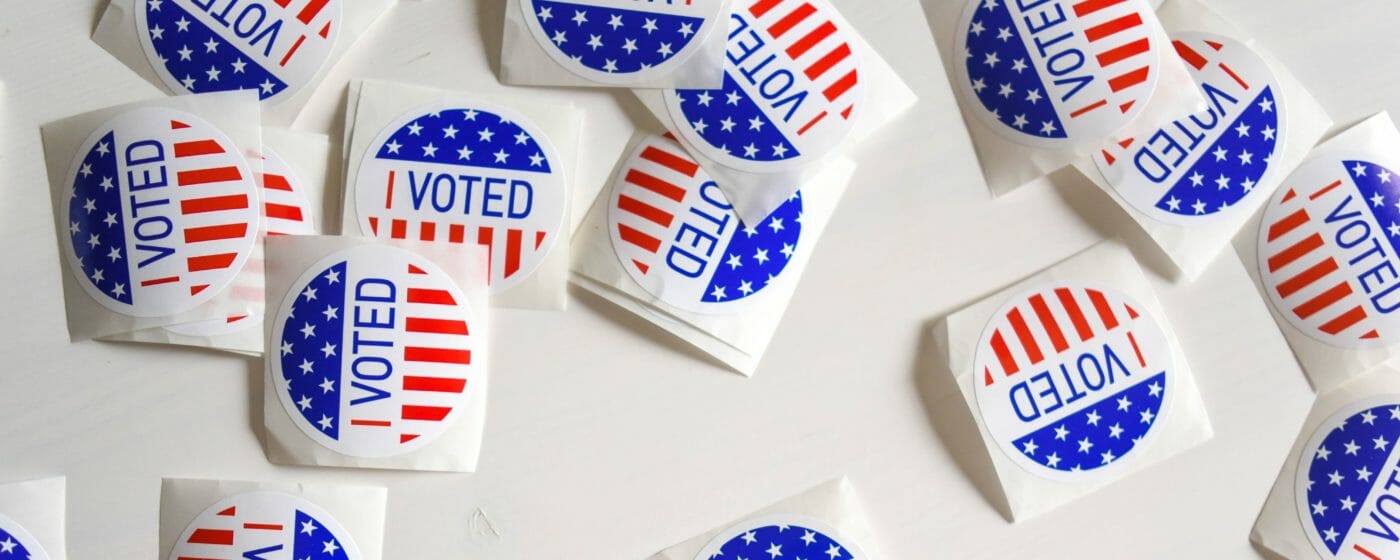Election season is upon us and the stakes are higher than ever.
While the presidential election has been dominating media coverage, there are many important votes — from local and state ballot measures to local, state and national representatives — this November. Importantly, there are also many opportunities to support cannabis decriminalization and legalization nationwide.
We want you to be as informed as possible about how the coming election will determine the future of accessible cannabis. Here’s a cannabis voters’ guide for the 2020 election.
How to Register to Vote
First and foremost, it’s important to make sure you’re registered to vote—today, not tomorrow.
One great resource is HeadCount.org’s Cannabis Voter Project. They make it easy and fast to check whether you’re registered or to get registered if you’re not. Registering takes just minutes. Once you’re registered, make sure to take some time to inform yourself about the many issues at hand.

What’s on the Table?
Aside from the national election (which is, of course, monumentally important), there are many other vital votes relating to cannabis taking place this fall:
Presidential Election
This year’s battle between Donald Trump and Joe Biden has been brutal, and it’s safe to say it hasn’t done much to make most of us feel particularly excited or unified in the face of the upcoming election.
But support for cannabis legalization is one issue where Americans largely agree. A 2019 Pew Research Center poll found that two thirds of Americans support legalizing cannabis, and fewer than one out of ten people would prefer it remain illegal. (SOURCE)
While Trump has historically made no effort to support legalization, many cannabis activists point to Biden’s refusal to commit to legalization, instead focusing on decriminalization as a worrying sign.
As the tide of public opinion continues to support legalization, the Democratic Party seems more likely to pressure Biden to advance cannabis policy.


33 Senate Seats
A full third of the 100 positions in the U.S. Senate are up for grabs this year, including 12 seats currently held by Democrats and 23 currently held by Republicans. This is seen as a critical Senate voting year, as Democrats may gain a majority in the Senate, providing them control of both the House and Senate at the same time.
Each of the following states has a Senate seat up for grabs this year. In the case of Georgia, there are two seats up for grabs due to a retirement. We’ve marked each state with an R or D to represent whether the seat is currently occupied by a Republican or Democrat.
If your state has a Senate election this year, make sure to research the candidates to determine who has the better record and history of public statements on cannabis legalization and support.

435 House of Representative Seats
Every single one of the 435 seats in the House of Representatives will be on the ballot this year. Of these 435 races, 41 are considered battleground or swing races where it’s unclear whether a Democrat or Republican will win.
These include two districts in California— California’s 21st (currently held by a Democrat) and California’s 25th (currently held by a Republican).
11 State Governors
Because legalization is currently left up to state governments, Governors have immense power when it comes to advancing cannabis reform or maintaining the status quo. It’s not just about legalizing cannabis— it’s also about helping provide justice for those who remain imprisoned for minor cannabis offenses.
The following states have elections for Governor on the ballot this year: NOTE: We’ve marked each state with an R or D to represent whether the seat is currently occupied by a Republican or Democrat. We’ve also noted where each state currently stands on legalization.

States Voting on Legalization
In addition to important races for Governor, there are also six states voting on legalization this year. Here are all of the states with cannabis on the ballot and the type of legalization that’s on the table.
Recreational Legalization
There are four states with full legalization on the ballot in 2020: Arizona, Montana, New Jersey, and South Dakota.
Medical Legalization
Medical legalization is also on the table for some states this year, including Mississippi and South Dakota

How Should You Vote?
There has been a lot of talk about how to vote in a way that will ensure your vote is counted. The methods available to you for voting depend on the state. For example, in California you can vote by mail and ballots are automatically mailed to registered voters.
Our advice? If you don’t feel comfortable voting in person (which is still available as an option), vote by mail as early as you can. As soon as you receive your ballot, fill it out and send it in. You have a right to have a vote counted as long as it’s postmarked by Nov. 3, but the earlier you send it, the more sure you’ll be that your vote will be properly counted.
Voting is one of the most important responsibilities we have, and that has never been more true than in this contentious year in which the future of our country— including cannabis reform— hangs in the balance. At Embarc, we encourage everyone who is eligible to vote to get out and exercise that privilege. You decide the future, but it requires your participation.

SIGN UP AND SAVE!
YOU COULD EARN: 0 POINTS 👀
YOU COULD SAVE: $10.80 🤩
